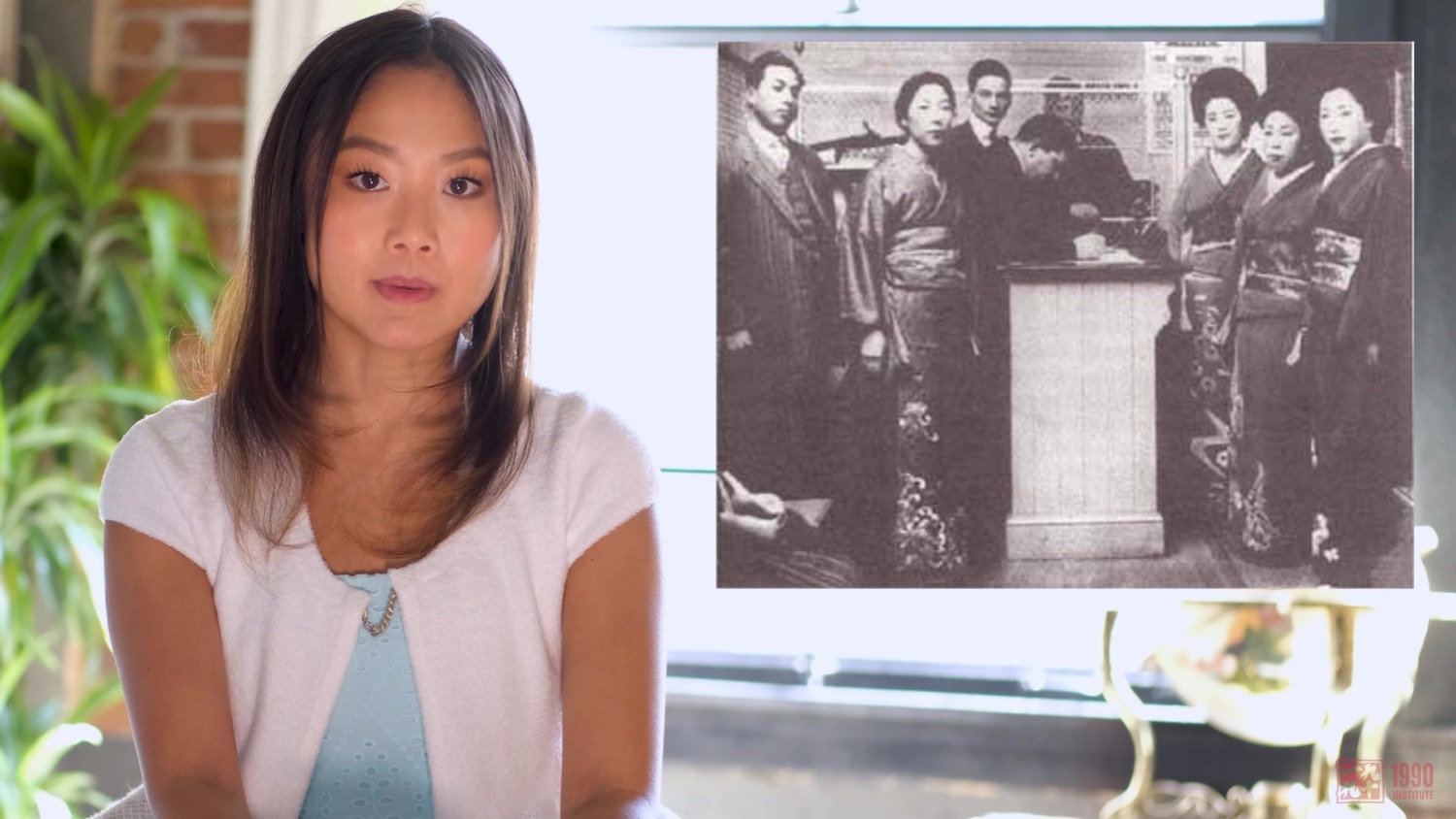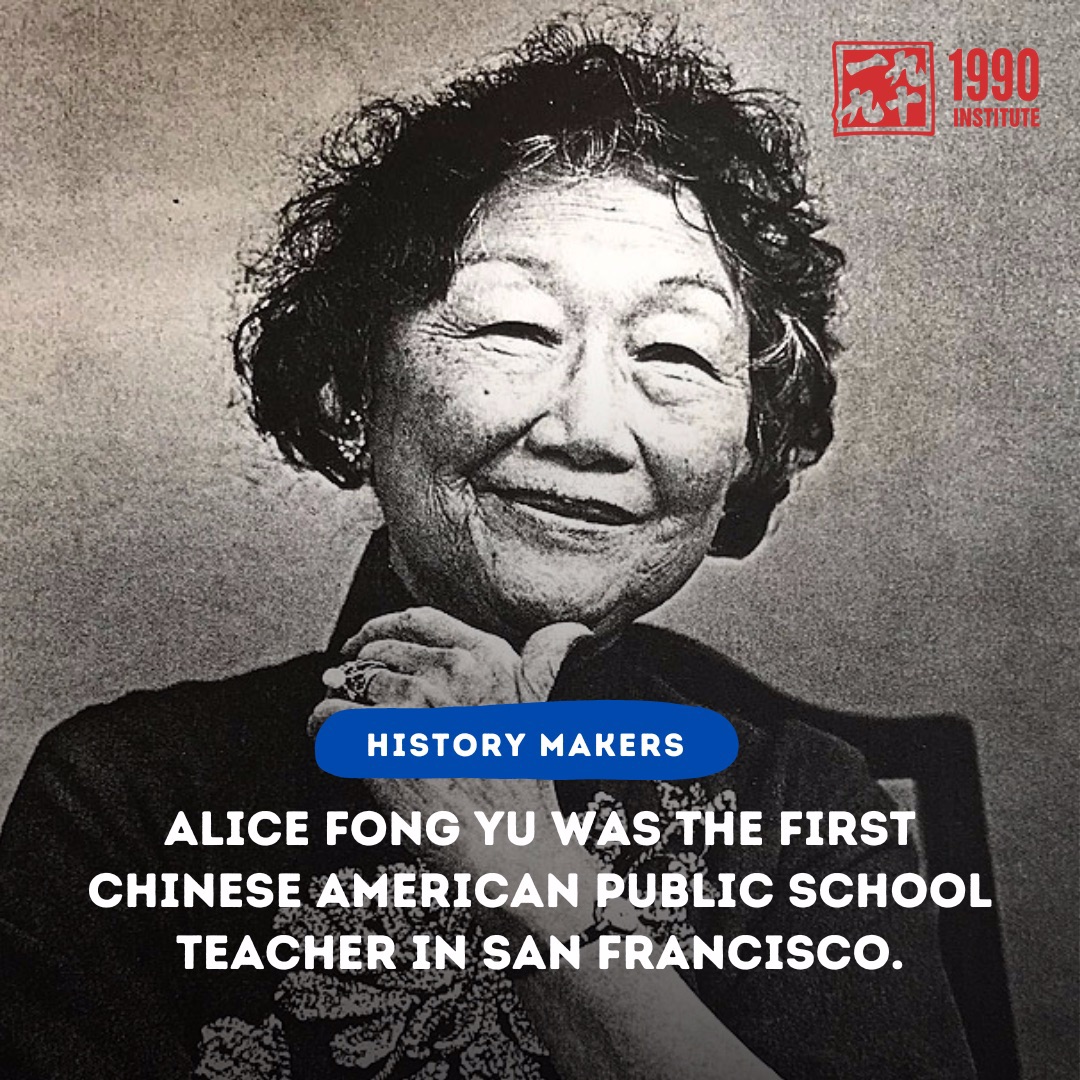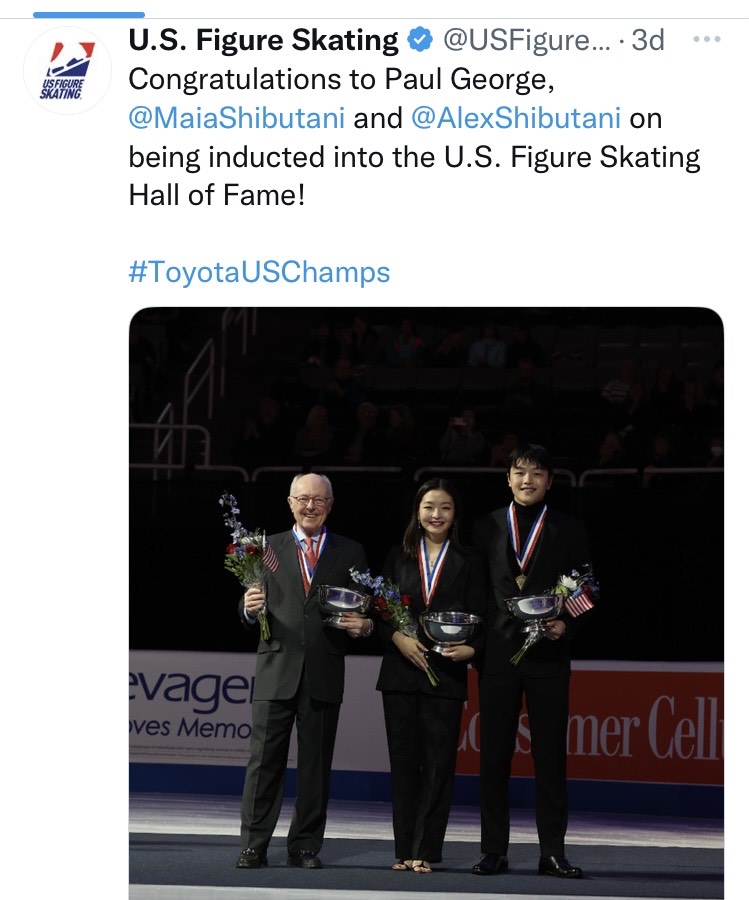| | | | Dear Friends, Happy Black History Month! American history is filled with examples of Black and Asian American solidarity. Writer and abolitionist Frederick Douglass (1818-1895) often spoke out in support of Asian Americans’ rights and how civil rights and humanity should apply to one and all. We’re proud to feature his story this month on New Asian American Voices. Also new is our video on the historical Waves of Immigrants from Asia to America. Check out our Spotlight section below to learn more. In Florida, two recent actions around ethnic studies have had contrasting outcomes. State Senate Bill 294, introduced on January 26, requires instruction of the history of Asian Americans and Pacific Islanders be taught in Florida public schools. However, earlier in the month, Governor Ron DeSantis and the Florida Department of Education rejected an ongoing pilot African American AP course that falls under Florida’s existing statute requiring that African American history be taught. The 1990 Institute supports a diverse ethnic studies curriculum that includes the rich, intersectional history and cultures of all Americans. Thanks for your continued support of the 1990 Institute and newsletter. Please share this newsletter with your friends and family and encourage them to subscribe. |
| |  |
|
| | | How can we make connections after disconnections? By Frances Kai-Hwa Wang
I was at the beautiful historic Michigan Theater downtown listening to performance artist Kristina Wong deliver the prestigious University of Michigan Penny Stamps artist lecture when an older white man sitting two rows behind me suddenly lunged forward, walloped me on the shoulder and scolded me for using my phone. I was so surprised that I did not know what to say. Was I really in the wrong? This was not a theater performance. This was an academic lecture. Is it normal to wack a complete stranger in a public theater for any reason? Did my being Asian American and a woman and younger than him have anything to do with it? But I could feel the weight of where he had put his hands on me for the rest of the lecture. And I marveled at the irony of being assaulted at a Kristina Wong lecture. This was a very minor incident, and I imagined all his gaslighting responses that I was overreacting, that it was just a light tap, that it was my own fault, but I resolved to say something as soon as the lecture was over. But when I turned around to tell the man the obvious kindergarten truth that he should not lay hands on other people, he was already gone. The three young white women in the row behind me, however, had seen it all, and immediately started talking with me, “I’m so sorry that happened to you.” He had hit one of them, too, for using her phone. Later that night, I spoke with a multiracial Asian American professor who sat two rows behind me, in my assailant’s row, and had also seen it happen, “That was you?” She said that the man's wife looked really shocked and embarrassed when he did it. Talking to all these other women was so reassuring. It was not just me. I was not imagining it. It was not normal. Solidarity. This is the power of bystander intervention. Asian Americans Advancing Justice (AAAJ-AAJC), Right To Be (formerly Hollaback!), and AARP are partnering with Comcast NBCUniversal to broadcast their multilingual bystander training public service announcements (PSAs) to encourage people to learn how to take action when they witness harassment. The Indiana Chapter of the National Asian Pacific American Women’s Forum (NAPAWF Indiana) held a rally last weekend to reboot their March 2021 petition to call on Governor Holcomb to take action against anti-Asian racism. In the past two years in Indiana, there was a mass shooting at the Indianapolis FedEx facility, “mock Asian” gibberish uttered during a commencement ceremony by Purdue University Northwest Campus Chancellor, and a young Asian American woman stabbed on a Bloomington bus for being “Chinese.” The petition asks the Governor to publicly recognize and condemn these acts of hate against Hoosier Asians and Asian Americans, implement procedures and programs to support AAPI communities without escalating law enforcement, and establish a statewide advisory commission for AAPIs. NAPAWF Indiana recalled Chinese American author Maxine Hong Kingston’s words, “In a time of destruction, create something."
|
| |
|
| | State senator announces bill to require Asian American studies in Florida schools | ClickOrlando.com Senator says legislation wouldn’t add financial cost to schools. Opinion: A Terrifying Sign of Assimilation | New York Times “Together, they put a new face on mass murder, one that shocked many of us precisely because of its lined and weathered familiarity — one that could easily have belonged to our uncles, our fathers, our grandfathers.” For my Chinese American parents, ballroom dancing brought fun, comfort and a sense of belonging | Salon The importance of ballroom culture to many senior Asian Americans brings the Monterey Park tragedy into focus. Essay: The US Values Asian Work More Than Asian Lives | Time “So many misconceptions over the Asian experience in the U.S. that…it starts to feel conditional, as if the only place for Asians in the U.S. is that of work, of subservience. Also dangerous is when this becomes how we see ourselves.” After 3 years of Covid, CNN went into rural China for Lunar New Year. Here’s what we found and how officials tried stopping us | CNN “I’ve been very homesick working away from home,” said Xiao Qing, a young woman in rural Dali Village. “Staying at home means farming. Young people like us don’t get much income from farming.” China's Sichuan frees unmarried people to legally have children | Reuters Health authorities in China's southwestern province of Sichuan will allow unmarried individuals to raise a family and enjoy benefits reserved for married couples, in the latest effort to bolster a falling birth rate. What's next in the saga of the suspected Chinese spy balloon | NPR The U.S. military shot down a suspected Chinese spy balloon after it had traveled across much of the U.S., and U.S. officials are working to investigate the balloon's wreckage. China’s Economy is Rebounding, But Reforms Are Still Needed | CNBC Sustaining the recovery will require both monetary and fiscal support as well as accelerated structural reforms. Chinese-born woman sues adoptive parents for allegedly locking her in basement, forced slavery and racist treatment | NBC News Olivia Atkocaitis, now 19, alleges in the lawsuit that her parents prevented her from attending public school and imprisoned her in a room in their basement. |
| |  | Alice Fong Yu was a third-generation Chinese American teacher and community organizer who broke barriers when she was hired to teach in San Francisco public schools in 1926. Read more about her on New Asian American Voices. |
|
|
| | -
NEW VIDEO ON THE HISTORICAL WAVES OF ASIAN IMMIGRATION TO THE U.S. – The 1990 Institute has released an educational video titled Waves of Immigrants: The Asian American Journey, covering immigration from Asian countries and the obstacles, discrimination, and violence that these immigrants have faced. In this new video, actor Krista Marie Yu, co-star of ABC’s “Dr. Ken” with Ken Jeong and Hulu’s “Reboot,” narrates an easy-to-follow timeline of the treacherous and brave path of the Asian Americans who came to the U.S. before us. Krista is a fifth-generation Chinese American and she also shares some of her own family’s stories. Her grandmother, Alice Fong Yu, was the first Chinese American public school teacher in San Francisco. Our video also details how the tenacity of Asian immigrants helped shape immigrant rights – not just for Asian Americans – but for the many who came after them and are citizens of America today. See this video on our YouTube channel today. - BLACK HISTORY MONTH AND ASIAN / BLACK SOLIDARITY – Black History Month is here and we’re honored to feature writer, activist, and abolitionist Frederick Douglass. He was born into slavery in 1818. and in 1938, escaped to New York City where he declared himself a free man. He became well-known for his incisive writing and passionate anti-slavery speeches. He spoke with an appeal to return to the principles of justice and equality for all upon which our nation was founded. In his “Composite Nation” speech (1869), he said, “I have said the Chinese would come…. Do you ask if I favor such immigration, I answer I would. Would you have them naturalized, and have them invested with all the rights of American citizenship? I would. Would you allow them to vote? I would. Would you allow them to hold office? I would." Learn more about Frederick Douglass and see more excerpts from his speeches on New Asian American Voices.
|
| | Dim Sum - A Little Bit of Heart |
|  | |
|
|
|
| | | | 1990 Institute
P.O. Box 383 | San Francisco, California 94104
contact@1990institute.org www.1990institute.org Copyright 2023 The 1990 Institute. All rights reserved. |
| | | |
|
| |
|
|